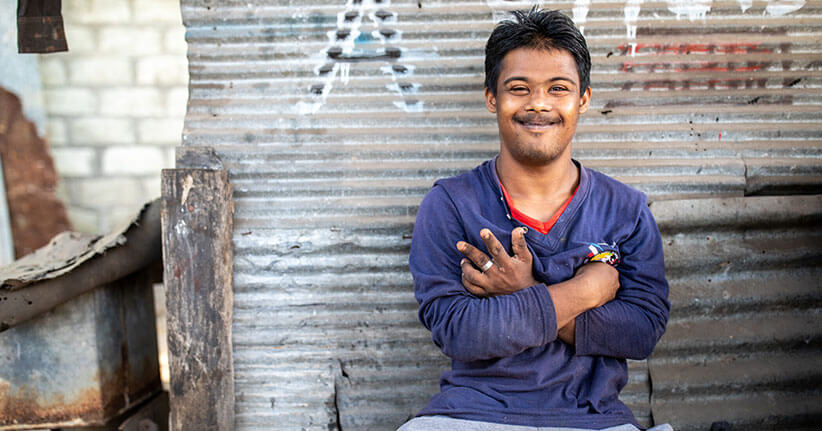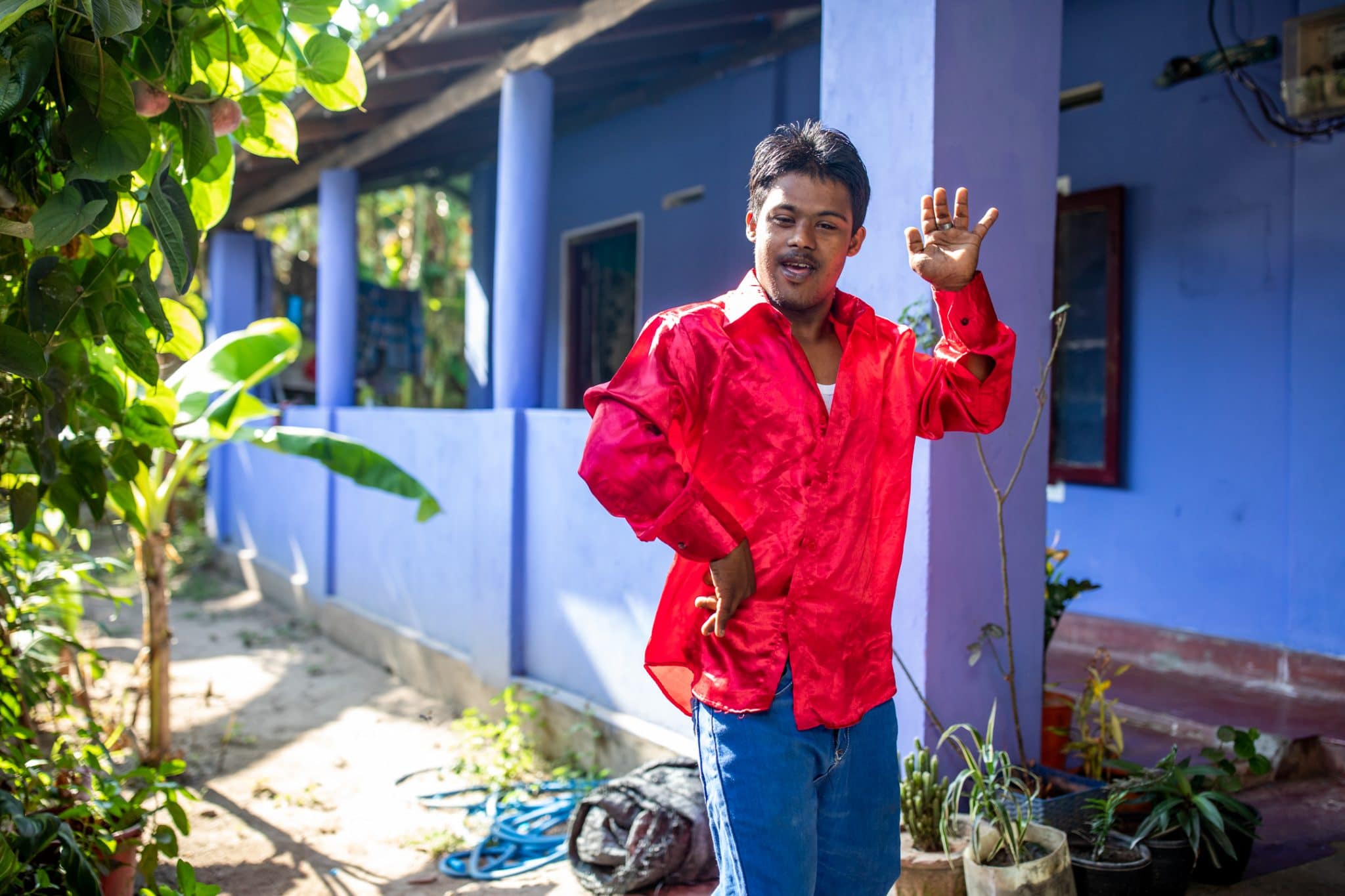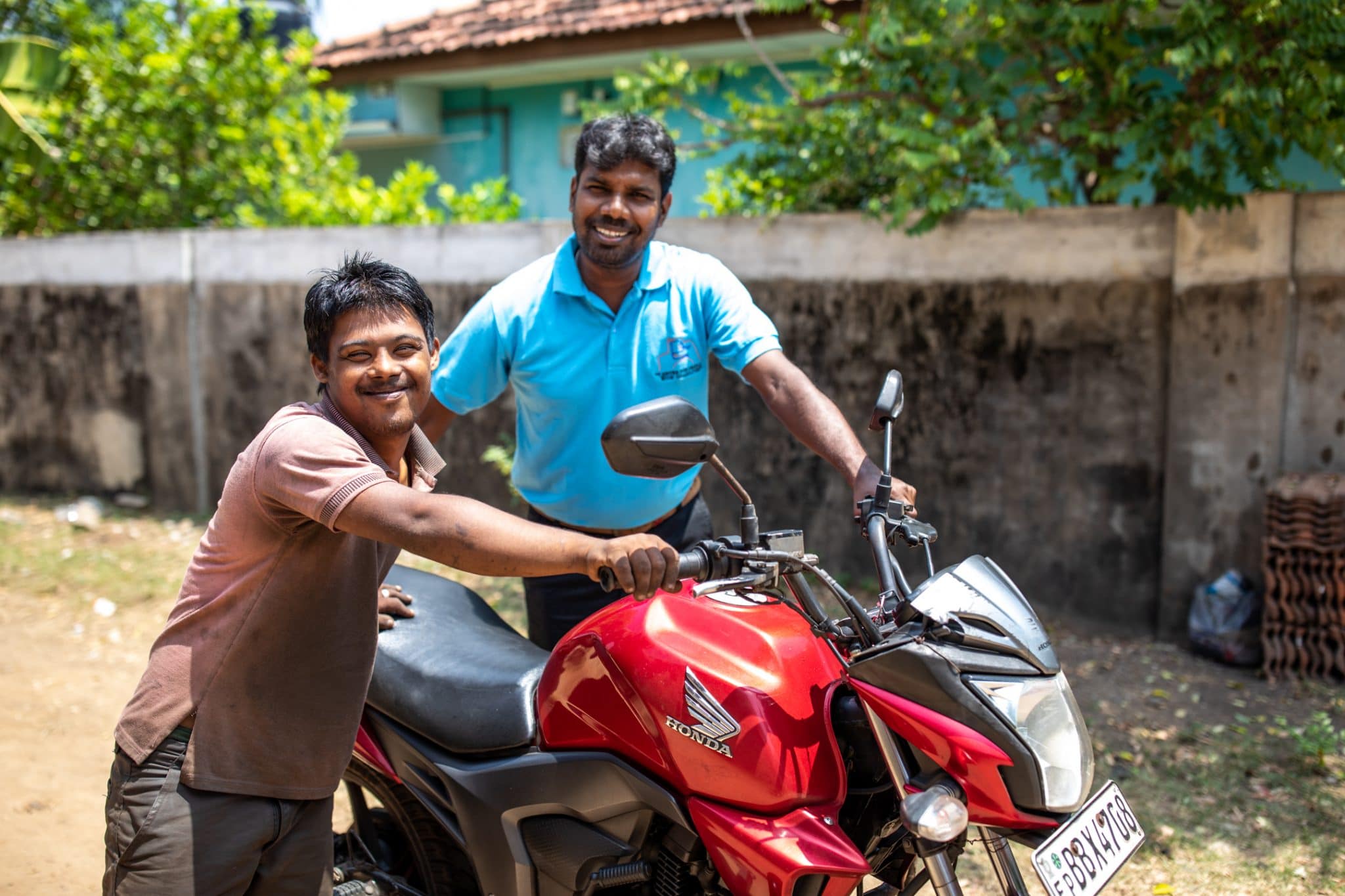
Every young person values their independence. Raj is no exception.
His goals include having enough money to buy all the slippers he wants, and never marrying. And while these may seem modest desires, the fact that they’re top of mind for the nineteen year old is remarkable in its own way.
Raj lives on the West Coast of Sri Lanka, in an area where almost every building within 500 metres of the coast was destroyed by the 2004 Boxing Day Tsunami.
Most of the people who live here are Tamil, and their hammering at the hands of the monster wave came on top of years of suffering during Sri Lanka’s long running civil war. As many as 100,000 people died in the conflict, with the same number unable to live in their own homes.
The conditions have been horrendous, but these people are tenacious and they’ve built back better. They dream of better futures for their kids off the back of a good education, economic development and the tourist industry, which had been booming up until the arrival of COVID-19.
The day we met Raj it was hot; the small house where he lives with his parents and sister was comfortingly cool and dim. We sat together and he fidgeted in a chair while his mum told us, via our interpreter, about Raj’s early school life. He had struggled to concentrate and was regularly ejected from his classroom.
“We knew there was a problem; he did not talk as well as other children,” Raj’s mum said. “That didn’t stop him from trying! The teachers say he was always chatting in the classroom and especially to the girls. They said they couldn’t teach him anything.”
In Sri Lanka and other developing countries, disability is still not well understood or diagnosed. And it’s often attributed to offending against the gods, which places the entire family under pressure. People with disability are up to five times more likely to live in poverty.
“We were very worried,” Raj’s mum told us. “Without schooling how could he get a job? Who would look after him when we were old?”
Game changer
Not long before Raj was due to start high school, he was diagnosed with Down syndrome. That was when the Methodist Church of Sri Lanka became aware of the family and offered Raj a place in their disability inclusion class in a Church school nearby.
How was the new school, we asked Raj?
His grin was wide. “It was good, better. I got to do sport and dance. I got to talk more.”
We’re pretty sure Raj’s mother and sister roll their eyes at this. They tell Raj to show us his trophies, and he obliges. And they press him to show off some of his dance moves, which he’s also keen to do, so long as we can find the right track to suit the mood on my phone.

The joy with which he pulls his moves leaves us all upbeat.
Still elated, he throws his leg over a motorbike behind one of our Deaf Link partners and takes us to check out his place of employment, which he found with the help of Deaf Link when he graduated from school two years ago.
It’s off one of the town’s main roads, dusty, hot and ringing with the noise of tuktuk and motorbike traffic. Here, under the supervision of a guy who has worked as a mechanic all his life, Raj is learning the tools of the trade. He proudly demonstrates his welding prowess, chats with a regular customer who’s come in to have something done to his bike, and jokes and laughs with his supervisor.
“Raj is a good worker,” his supervisor tells us. “I’m happy to give him this chance. Lots of young people don’t have a job. They can’t earn a living. Raj is lucky.”
Our partner staff agree, but it’s not just luck. They plan and pray and network to create stories like Raj’s, and they want to see more. They emphasise that education can only take you so far if you don’t have the connections to find work.
“We know what a difference we can make when we work together to support these families, and how much potential people have,” Rev Gnanarajah tells us. “Without the support of others, people with disability are often just left at home with very little to do, and no way even to feed themselves if their families aren’t able to provide for them long term.”
Which brings us back to Raj and his slippers. His dream of being truly independent, moving out of home (and presumably living the party boy life as long as possible) are touchingly rare for his context.And yet they exist, and he’s happy to share them with us. They’re an indication of something much larger at work: hope for the future, and the tools to make dreams come true.
Thanks for the part you’ve played in helping fund the Methodist Church of Sri Lanka as they work hard among those in their communities who are at risk of long term poverty. Your gifts to our tax time appeal will help create more stories like Raj’s, and we’re grateful!
If you’d like to make a gift today, visit here.
